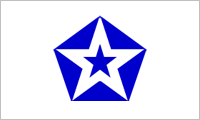
| |
| Official Languages | English, French, Spanish, |
| Auxiliaries | Esperanto/Europeano, Simplified Pictograms , Qur'anic Arabic |
| Headquarter (International) | Utopia |
| Headquarter (America) | New York |
| Headquarter (Europe) | Geneva |
| Secretary General | - |
| President of the Council | - |
| President of the Assembly | - |
| Founding | - |
History[]
Based on the writing of Immanuel Kant (especially his book "Perpetual Peace"), the winning nations of the Great War came together in a league whose goal it was to prevent any bloodshed such as that experienced during the conflict. In addition to the initial signatories, the USA later joined up after President Wilson impassioned speech managed to sway isolationists in the US senates.
The first meeting was held in London on 10 January 1920 but it was decided to move the permanent headquarters to Geneva due its history as neutral ground.
World Government[]
Headquartered in Geneva at the "Nations' Palace". League's departments are housed in other cities all over the world. The government is composed of 3 organs: the Secretariat, the Council & the Assembly.
Secretariat[]
Lead by the Secretary General and staffed by public servants, the secretariat is the permanent part of the league and is tasked with coordinating the efforts of the various member-nations.
Council[]
In charge of keeping the world's peace. It was originally composed of 4 permanent members and 4 members elected by the assembly for 3 years. Later, the idea of permanent members was scraped and the total number of members was extended to 15 with at least 5 chosen from the "pledging" nations (nations that had pledged a certain number of troops for peacekeeping missions).
The council meets at least 4 times a year but any number of extraordinary sessions may be called.
The chairman of the council is the President of the Council, the post being rotated between the council's members.
The deployment of the Peacegivers (the armed forces of the League) is done under the advice of the council.
Assembly[]
Composed of one representative from each member state, all having one equal vote (i.e. none have veto power). The head of the Assembly is the President of the Assembly.
Parliament[]
Unlike the Assembly which is composed of one delegate per nation (named by the government), the parliament is composed of delegates elected by citizens of the world, the number which is based on the population of a given country. The smallest state present at the assembly is given a single representative and other countries have delegates equal to a multiple of the smallest state's total citizenship.
League's Agencies[]
A number of agencies were created to coordinate the effort of the various like-minded organisations across the world.
- Permanent Court of International Justice: Judge's crimes that have an international impact such as piracy and war crimes. The court will only hear cases which cannot be addressed within the country in which the crimes were committed.
- World Health Organisation: Focuses on preventing epidemics and providing a certain level of health cares in developing countries.
- International Labour Organisation: Tries to promote within member-nations proper practices relating to product making and employer-employee relations.
- Permanent Drug Control Board: Ensures the quality of products used to manufacture medicinal drugs and supervise level of import and export to prevent their use as illegal narcotics.
- Council of Non-Sovereign Nations: Platform for non- or semi-autonomous ethnic groups.
League's Commissions[]
Unlike agencies, the commissions of the League are meant to address pressing but ultimately finite problems.
- Disarmament Commissions: In charge of limiting and, if possible, diminishing the size and deadliness of the nations' armed forces. As part of its charges, these commissions investigate possible breaches of the various treaties.
- Mandates Commissions: Supervise the administration of mandated territory by mandatory nations. This commission investigate abuses and complaint of exploitation within mandates. The commission will also organise elections within the mandate when deemed ready to achieve sovereignty.
- High Commission for refugees: In charge of repatriating displaced civilians and prisoners of war or finding countries of adoption when repatriation proves impossible.
Unlike the other commissions, High Commissions retain a small number of permanent staff which is extended by recruiting temporary staff when needed.
- High Commission against slavery and forced prostitution: In charge of eradicating slavery and forced prostitution in member-nations or in other countries when it involve nation-members' nationals.
The HCASFP maintain its own police force which organise raids against suspected slave traders and prostitution rings.
- High Commission for Condominium and International Zones: On a few occasions and to prevent a conflict, the league has suggested that disputed territories become condominiums or International Zone. In any cases, the League act as the guarantor of all sides' good faith.
Religious Consultants[]
To encourage ecumenical discussion, the League as granted the status of consultants within some of its agency to representatives of the world religions. Of these, the Baha'i faith is of special interest due to its central tenet of striving for unity of mankind.
